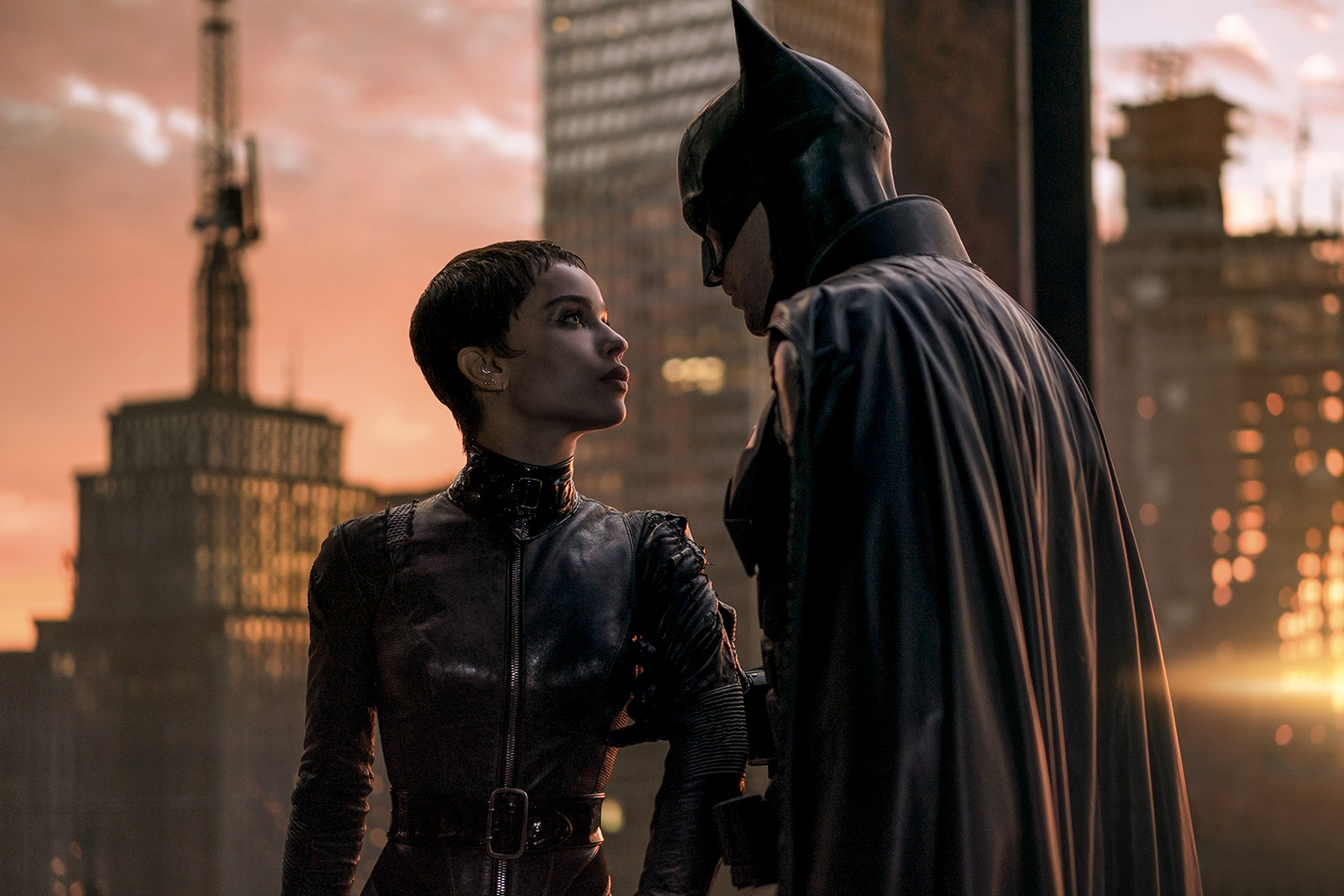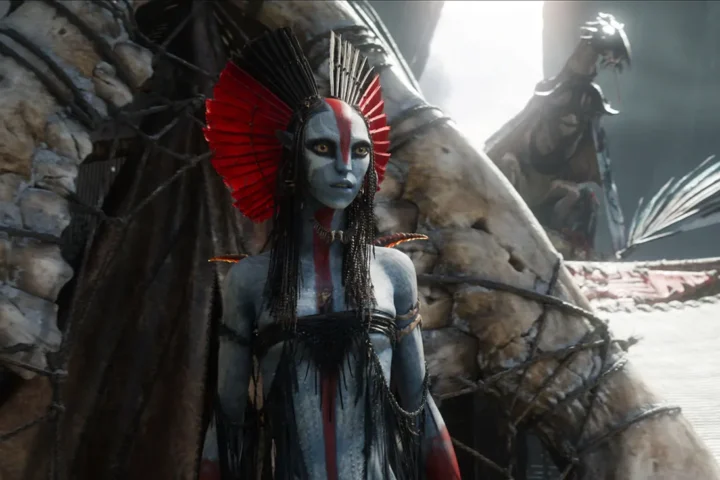Admittedly dreading yet another trip to Gotham City—and a three-hour one, no less—I was elated to discover Matt Reeves’ The Batman as perhaps the best entry in the D.C. hero’s more than three-decade movie run (though Tim Burton’s 1992 Batman Returns is very close). Series acolytes will surely point to Christopher Nolan’s celebrated 2008 opus The Dark Knight as the masked crusader’s apex, but Reeves’ picture wins on superb production values that render the film A-list regardless of genre, a fascinating turn from star Robert Pattinson who conveys surprising depth behind the mask, a richly conceived world of gritty, tenebrous beauty, and perhaps best of all, a most welcome departure from the usual, now-routine fantasy exploits.
Here is a Gotham City consumed by crime, political corruption and a lot of rain, and the soundtrack, featuring both an robust score by Michael Giacchino and rock inclusions like Nirvana’s Something in the Way, underscore that existing in this world is a tough slog. Every frame of ace cinematographer Greig Fraser’s lensing is as pure cinema in a film evoking the shadowy, designer noir of David Fincher’s Seven and Zodiac before any other in the superhero realm (save perhaps Joker, which presented a similar corrosive worldview).
Picture opens as Gotham City is on the verge of a new mayoral election, the incumbent (a corrupt, white male) facing the threat of a popular, young African-American female progressive (Jayme Lawson) promising change. He is brutally murdered by a masked assassin in the first of several high-profile political executions from a taunting figure named The Riddler, who leaves crime scene notes and clues for Batman after each murder.
Batman’s ally inside city hall is police commissioner Jim Gordon (Jeffrey Wright), who thinks Batman may be able to help crack The Riddler’s codes and catch this killer. As the bodies pile up, the film’s sobering tone provides the gravitas of the great serial killer films, even harkening to paranoid 70s conspiracy thrillers with a rising and diabolical threat. But who is The Riddler? And why is he fixated on Batman?
Once he’s revealed late in the picture, the great actor Paul Dano delivers an exciting performance as an incel-like madman who’s assembled an online legion of similar malcontents bent on nothing less than the complete destruction of Gotham City and its entire population. Dano, taking big swings to convey derangement that remind one of Kevin Spacey in the denouement of Seven, has a late prison scene so wildly theatrical it was a risk to play so broadly; it’s arresting to see. In past versions, The Riddler is often played for laughs or with a far lighter mania, but here he is of deadly psychosis, a wounded and very angry young man that “the system” has abused and spit out. And someone is going to pay for ignoring the signs (it’s here the picture takes on a disconcerting symmetry to young, white American terrorists).
Michele Pfeiffer will always own the Catwoman role, but Zoë Kravitz is a good latter-day version of Selina Kyle, here a nightclub lounge waitress turned thief who develops a tentative relationship with Batman, a kindred spirit over their shared adolescent traumas (including a mystery regarding her lineage). She’s also the picture’s social justice crusader of sorts, railing about Gotham City’s “white privileged assholes” (a phrase that has caused significant debate online amongst young male fans) and working overtime to avenge the disappearance and brutal death of her girlfriend and roommate, Annika (Hana Hržić). This may, or may not have something to do with mob boss Carmine Falcone (John Turturro) or perhaps The Penguin (Colin Farrell, unrecognizable and terrific).
Pattison is a superb in an about-face recreation of Bruce Wayne as a recessive and often sad genius. To the film’s credit, it does not repeat the ill-fated origins of Wayne’s orphan-hood but rather presents the character as an adult with enigmatic resignation about the decay of the world in which he must exist; to him, if often feels like a losing game. With jet black hair hanging in his face, chiseled cheekbones and almost translucent pallor, Pattinson’s Wayne looks like a recessive goth graduate student or perhaps a British Invasion punk bandmate. This demeanor is in direct opposition to Batman’s crime-fighting charter, of course, and Reeves well keeps the combat smaller scaled, steeped in realism and always interesting given Pattinson’s searing expressions from behind black leather. He cleans up marauding thugs at night but is by no means publicly revered, less about meting out justice than “vengeance,” as he calls himself.
Special mention to the film’s masterful climax, set inside Gotham City’s version of Madison Square Garden, the city brought to its knees by The Riddler as rushing flood waters threaten to overtake its refuge-seeking citizens. There’s one moment in particular involving hand-to-hand combat on a scaffolding that deftly deploys Oscar winner Giacchino’s score in sync with Batman’s throttling; the result is breathtaking in Dolby Atmos.
I can’t recall ever being as involved in any of The Batman’s predecessors, and this excursion represents budget, talent and time well spent. This is how it’s supposed to be done.
4 stars.



